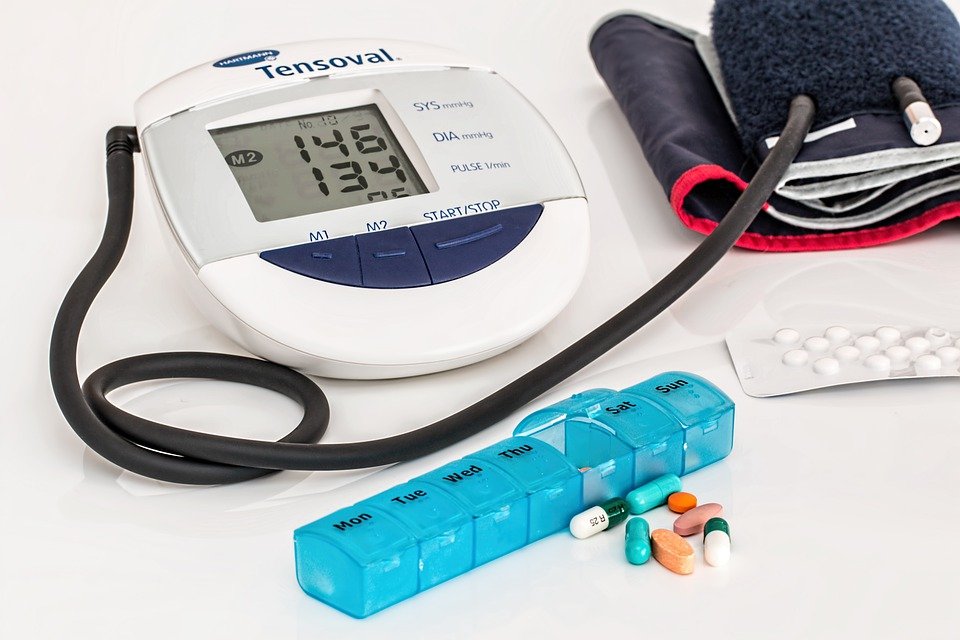
For the majority of Americans, the challenge of carrying extra weight is all too familiar. For those over 40, any extra pounds have a tendency to accumulate in the middle area of the body, and this is usually unwanted.
Excess weight around the midsection is a very typical sign of metabolic syndrome which is sometimes also referred to as “Syndrome X” or “pre-diabetes.” Having metabolic syndrome can greatly increase the chances of developing conditions like heart disease, diabetes, cancer, stroke, and dementia as they are all a result of various subtle conditions.
Until not long ago, it seemed like there was not much people could do to significantly diminish their extra belly fat. Research that is on the cutting-edge has fortunately uncovered an achievable tactic for fighting off middle-aged weight increase as well as the common markers of metabolic syndrome like high glucose, LDL, and C-reactive protein in the blood.
What is Leptin?
Leptin is a hormone, produced by adipocytes (fat cells), that functions to maintain a lean body composition by at least two distinct mechanisms:
It begins by manipulating the desire for food by connecting to a part of the brain identified as the hypothalamus where it sends out signals to indicate fullness. Generally, when someone is well-fed, their leptin levels will be elevated, and this signals the hypothalamus to decrease the feeling of hunger. Leptin increases the body’s capability of extracting and using fat as an energy source.
In the middle of the 1990s, scientists in the medical field took notice of leptin when they injected it into mice that were genetically overweight, and these animals lost 30% of their body weight in only two weeks due to the daily administration of leptin. In 1995, researchers thought they had finally found the ideal solution for weight management. Researchers were dilligently performing experiments on human beings soon after, but when obese people were given injections of leptin, the anticipated effects did not occur: appetites were not decreased, and the person did not lose any weight.
The investigators were not shocked when extra leptin injections did not lead to any weight loss in human subjects; this outcome was to be expected. Previous studies had demonstrated that individuals with greater body weight had substantially higher serum leptin levels than those of normal weight. Research has shown that the amount of leptin an individual has is linked to both the volume of fat in their body and the size of their fat cells. Basically, the more overweight someone is, the higher the level of leptin in their blood.
Leptin and Weight Loss
Leptin is just as significant a hormone as ghrelin in regards to maintaining a healthy weight, informing you that you have had enough food.
Leptin’s function is to inform the brain that there is an adequate amount of food in the stomach for the cells to have the required quantity of energy.
Leptin is also important for regulating your energy balance long-term to control:
- how many calories you eat
- the amount of calories you use, and
- how much fat you are carrying on your body.
Essentially, this ensures that you don’t go hungry or eat too much, but instead remain healthy and find balance.
Since leptin is created by the fat cells in the body, it stands to reason that the more body fat an individual has, the more leptin will be produced.
When operating as it was intended to, when you take in more calories, your body accrues more fat as well as more leptin. When the brain realizes that there is a surplus of leptin present, it communicates to you to cease eating.
If you lack the adequate amount of body fat, your leptin quantities will reduce, which sends a message to the brain to permit for more eating to bring back leptin (and also body fat) levels to a normal standard.
Leptin Gone Awry
That’s how it should be, yet it doesn’t always turn out that way.
When someone is overweight, they will have more fat cells as well as an increased amount of leptin in their system. Ideally, the ample presence of leptin should be seen as a cue from the brain that it has sufficient energy levels and therefore does not need to eat further.
Nonetheless, a lot of overweight individuals have leptin resistance, which implies that the brain does not recognize the amount of leptin present and instead orders the body to consume more and become less physically active to spare energy.
In the long-run, this can result in an increase in weight.
The main causes of leptin resistance include:
- Chronic inflammation: increased inflammatory markers in the blood can stop the transmission of leptin signals in the brain
- Increased levels of leptin: the development of leptin resistance is more likely with chronically elevated levels of leptin
There is a definitive tie between leptin resistance and weight control, which is made all the more clear by the presence of both inflammation and higher levels of leptin in those who are obese.
Symptoms of Leptin Resistance
Think you might be leptin resistant? Determining the issue is the initial action to ameliorating your wellbeing.
Here are the three most common symptoms you should expect if you’re leptin resistant:
1. You Crave Foods
In case you find yourself eating incessantly but frequently feeling no contentment, leptin resistance may be the underlying factor. Leptin sending an inadequate message to our brain results in an insatiable appetite and persistent food desires.
2. You’re Always Stressed and Tired
Insufficient sleep and ongoing tension can raise the amount of cortisol, a hormone related to stress which contributes to leptin resistance, as well as obesity, inflammation, and other health complications.
3. You’re Overweight or Underweight
An indication that leptin is not functioning correctly can be seen when one steps on the scales. An indication that you may be resistant to leptin is having an excessive or inadequate amount of body fat.
How to Reverse Leptin Resistance
Although leptin resistance may seem intimidating, there are measures that can be taken to deter or turn around the situation.
Ultimately, it comes down to lessening inflammation through altering your diet and adjusting your habits and routines. Here are a few simple steps you can take to get on track to reversing leptin resistance:
1. Exercise
Incorporating more physical activity into your routine not only keeps you fit, but it can also help your body resist the effects of leptin. Studies have revealed that increasing physical activity can reduce leptin levels, BMI, and the amount of body fat.
2. Get More Sleep
Insufficient sleep has been linked to leptin resistance, which is a serious issue. The easiest way to protect yourself is to make sure that you get a good eight hours sleep every evening. Research indicates that the amount of leptin in the body is impacted by the duration of one’s nightly slumber.
3. Follow an Anti-Inflammatory Diet
Eating a lot of sugar, fast food, and milk products has been associated with inflammation, and if consumed in excess, can result in leptin resistance.
Instead of having a highly processed diet, replace it with lots of fruit, vegetables, good fats and sources of healthy protein to reduce inflammation and stop leptin tolerance from setting in.
4. Minimize Stress
It would be beneficial to try and reduce stress as much as possible, as high stress levels can influence leptin resistance, along with many different illnesses. Rather than increasing tension, seek out methods of easing your stress in a healthy way and controlling your anxiety.
5. Eat More Fiber
Fiber plays a significant role in how full one feels and in maintaining a healthy weight. It travels slowly through your digestive tract and provides a sense of completeness and contentment.
This not only gives the advantage of weight loss, useful in tackling leptin resistance, but also encourages a functioning digestive system, and helps keep the bowels active.
6. Avoid Grazing
Many times, we can be caught nibbling on things here and there throughout the day. It could be seen as innocuous having a nibble now and again, but those consumed morsels can really increase when added together.
Create an eating schedule that includes three meals and some healthy treats instead of grazing on junk food throughout the day. This can help maintain leptin levels even, thus stopping sudden jumps that could happen if you ate regularly throughout the day, making the body much better equipped to interact with leptin in the right way.
7. Increase Your Protein Intake
Getting enough protein not just aids with slimming down, but can also impede leptin intolerance. Studies suggest that a diet rich in protein can lower hunger, fuel weight reduction, and lessen leptin levels.
Introducing: Irvingia Gabonensis
A bush forming Irvingia gabonensis, which produces fruits, is discovered in the cool and plentiful rainforest located in Cameroon. Extracts from the seeds of this fruit, which have been a significant part of the place’s culinary customs for a long time, have recently gained prominence in scientific papers for their remarkable potential to lead to weight loss without any other changes in lifestyle. As research continues to expose the different ways that this extraordinary plant works, it is becoming clear that one of its multiple great powers may be connected to its power to confront leptin resistance by decreasing the level of CRP in the blood.
In a placebo-controlled experiment, 102 overweight participants who were in otherwise good health ingested either 150 milligram capsules of Irvingia extract or fake pills twice a day before their meals, over the course of 10 weeks. At the end of the testing period, all nine measurements of physical health and body composition displayed noteworthy improvement in the experimental group. By the 10 week mark, individuals in the Irvingia group had seen a notable decrease in body weight of 13.1%, an average loss of 28 pounds, and a reduction of 6.7 inches in their waist circumference along with a decrease of 18.4% in their total body fat.
The changes to body weight and composition were remarkable, but the that happened to the markers of inflammation and predictors of heart disease and diabetes were even more extraordinary. The Irvingia group were pleased to see that their cholesterol levels had gone down by 26%, LDL levels decreased 27%, fasting blood glucose levels dropped 32%, and their serum CRP levels even plummeted by a fantastic 52%.
Up to this point, no other compound or drug—neither medication nor health supplement—can compare to the breadth and depths of the outcomes that were seen throughout the 10-week clinical trial of Irvingia gabonensis. Can one natural plant extract provide such varied advantages?
Professor Julius Oben, who works as a research scientist, biochemist, and lecturer at the University of Yaounde I in Cameroon, has come to the conclusion that obesity and metabolic syndrome are very intricate and hard to understand. He claims that the impressive effectiveness of Irvingia is because of the variety of physical parameters the extract targets.
According to Oben, it is necessary to tackle each element of obesity in order to reach meaningful progress.
The sheer range of activities that Irvingia is able to carry out is truly remarkable. Irvingia has a beneficial effect on leptin, as well as other hormones like adiponectin and insulin, plus enzymes like amylase and glycerol-3-phosphate dehydrogenase, making it a great health-promoting choice.
Adiponectin, much like leptin, is made by adipocytes which is crucial for upholding a typical metabolism and a balanced body weight. Unlike leptin, adiponectin production is inversely related to adiposity. As fat is lost from the body, it is thought that increases in the levels of adiponectin present in the bloodstream is what causes the typically-seen improved response to insulin when weight is lost. Research shows that adiponectin has properties that could be beneficial in reducing inflammation, treatment of diabetes, and protection of the heart.
The advantages to your health of taking Irvingia, as evidenced by increased levels of adiponectin and leptin, are only one way that it helps fight against and may even turn back the clock on insulin resistance. Experiments have indicated that Irvingia can prevent amylase, which is the enzyme that splits up complex carbohydrates into simpler sugars, from working. This anti-amylase activity decreases the speed of glucose reaching the blood. The result is that absorbed carbohydrates have a lowered glycemic index and cause less of a response from insulin, which is beneficial in treating and preventing diabetes and inflammation.
The intake of Irvingia has a considerable impact on glycerol-3-phosphate dehydrogenase, an enzyme generated in fat cells which aids the transformation of sugar in the blood into triglycerides (fat). The main point of Irvingia’s involvement is to decrease the quantity of sugar consumed that eventually gets stored in the body as fat. It is thought that this result can help reduce leptin and insulin resistance by reducing overall fat storage and increasing the amount of adiponectin present in the blood.
Summary
For middle-aged individuals, an aggravating issue is the presence of abdominal fat which is hard to combat using traditional diet or exercise regimes. An increase in abdominal weight can be visually unappealing, as well as put an individual at a higher risk of getting certain illnesses. A recent study revealed that even individuals that are not overweight may be subject to a heightened risk of death if they have an excess of abdominal fat measuring as little as two inches. In particular, this hazard was increased by 17% for men, and 13% for women.
It has been determined that leptin resistance is a major contributing factor in the emergence of abdominal fat. Dr. Oben and his team of researchers discovered Irvingia, a plant extract that not only counteracts leptin resistance, but also accelerates the burning of body fat by blocking the enzyme glycerol-3-phosphate dehydrogenase, which helps convert glucose into triglyceride and store it in fat cells. Irvingia boosts the hormone adiponectin, which enhances insulin sensitivity, and inhibits the amylase which is a digestive enzyme that assists in the breakdown and absorption of carbohydrates into the blood.














